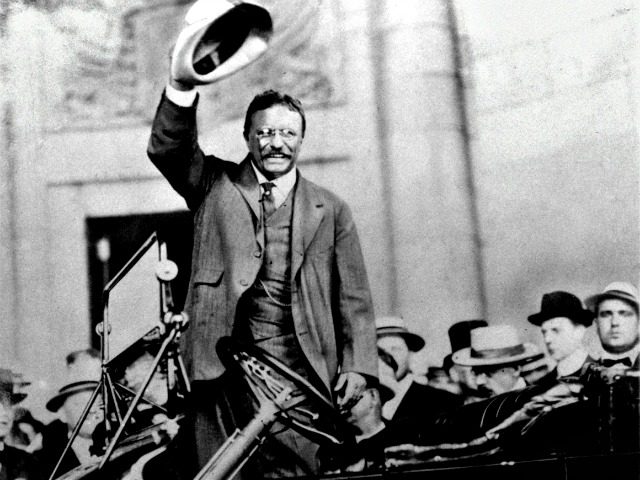With a 9 percent crash of “FANG” tech stocks in the post-election stock boom, Wall Street is fretting that President Donald Trump could be a modern day “trust-buster.”
There had been a stunning double digit underperformance of tech stocks versus other market sectors since Donald Trump’s election triumph. The ground zero for that reversal of fortunes involved the U.S. tech behemoths, dubbed the “FANG” stocks (Facebook, Amazon, Netflix and Google).
FANG performance dominated stock performance over the last two years. The group rose 83 percent in 2015, compared to only 1.19 percent for stocks in the Standard & Poor’s 500. FANG stocks continued their leadership this year with a 15 percent gain through the end of September, versus 5.9 percent for the S&P 500.
The biggest contributor to FANG companies’ success had been the wildly favorable U.S. regulatory environment they enjoyed under the Obama administration. Prior to November 8, FANG expected a more supportive relationship under President Hillary Clinton.
But according to London’s Financial Times, Trump administration policies threaten to place tariffs on offshore tech supply chains, tighten immigration affecting H-1B visas, and may launch a new era of antitrust scrutiny that could bust up the Internet monopolies.
“Monopolization” is defined by the Federal Trade Commission as an unlawful “conduct by a single firm that unreasonably restrains competition by creating or maintaining monopoly power.” Such activity has been prohibited by law since the Sherman Antitrust Act of 1890.
But it was not until Republican President Teddy Roosevelt came into office in the early 1900s that the law was used to break up the great U.S. “trusts” that dominated finance, steel, railroads, copper, and most other major industries. The fabulously rich “one percenters” of this “Gilded Age” became known as the “Robber Barons.”
Just like Donald Trump, who was born into privilege and attended elite schools with many who have become today’s billionaires, “Teddy” Roosevelt went to “prep” school with the children of J.P. Morgan, Andrew Carnegie, Andrew W. Mellon, Cornelius Vanderbilt, and John D. Rockefeller. Trump graduated from Wharton and Roosevelt graduated from Harvard.
By relying on his deep understanding of the Robber Barons’ unscrupulous use of concentration of power to squash competitors, President Roosevelt earned the title of “Trust-buster” by enforcing the laws against monopolists’ concentration of power.
There are substantial anti-trust concerns that the FANG corporations wield the same concentration of power to squash competitors as the trusts did in the Gilded Age. Google controls 64 percent of all U.S. search engine traffic, Facebook controls 45 percent of all U.S. social media traffic, Netflix has over 1/3 of all U.S. households as customers, and Amazon controls 60 percent of all online sales.
Breitbart News recently called Trump’s victory “A Rebellion Against Silicon Valley.” Despite their concentration of wealth and power, giant technology corporations have offshored the vast majority of their business operations and what many believe should have been jobs for Americans.
Despite endless stories about the entrepreneurial leadership of Silicon Valley, the U.S. annual balance of payments for advanced technology product sales has plunged from a $35 billion surplus in 1992 to a $92 billion deficit at the end in 2015.
Candidate Donald Trump ,peaking to a crowd at Liberty University, said, “We’re going to get Apple Computer to build their damn computers and things in this country, instead of in other countries.” He added, “We gotta bring back the jobs from China, we gotta bring back the jobs from Japan, and all these countries that are ripping us off. And we’re gonna do that. And we are gonna do that.”
If FANG corporations and other tech giants choose to not bring back jobs to the United States, President Trump can use existing anti-trust laws to force their dismantling.

COMMENTS
Please let us know if you're having issues with commenting.